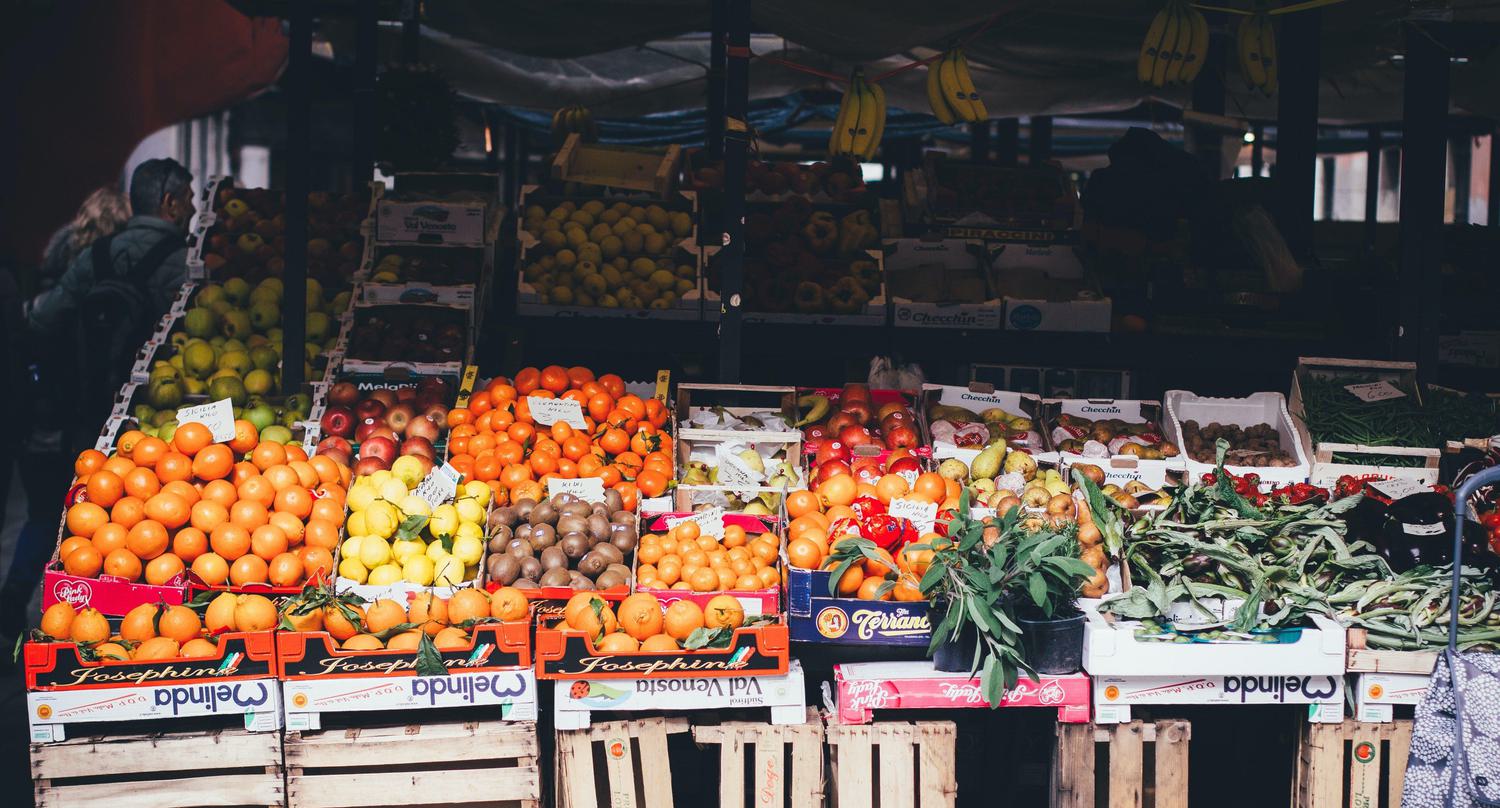You should always aim to choose local, organic produce over imported foods. Organic foods have greater nutritional benefit, such as antioxidants and vitamins, whereas produce reared in artificial environments often contain pesticides.
On This Page
Choose Local
While it is unlikely that Cayman will ever stop relying on imported food, local agribusinesses are flourishing. Additionally, the economic fallout being felt in the Caribbean, due to the implementation of international trade tariffs by the US, means that local produce (though limited) has become a cheaper alternative. Remember to bring your own bags as you don't want to leave with more plastic!
Camana Bay Farmers' Market & Monthly Artisans' Market
Discover all things grown in Cayman at the weekly Camana Bay Local Harvest Market on Wednesday from 10am–3pm. Local farmers from around the island gather to offer fresh produce and locally farmed goods. During high season, you will find a combined Farmers' and Artisans' Market lining the Paseo, providing hand-crafted speciality goods, gifts and produce. For up-to-date information, visit www.camanabay.com.
Cayman Farm & Garden
Patrick Panton sells a variety of fresh fruit, leafy greens, vegetables, fresh chicken, eggs and seafood from his farm in Bodden Town. He is at the Market at the Cricket Grounds on Saturday and the Camana Bay Farmers Market on Wednesday (both seasonal). He also has a thriving business doing home deliveries. Email patrick.caymanfarmandgarden@gmail.com and ask to be put on his mailing list. Then, when you are ready to order, you can email him at orders.caymanfarmandgarden@gmail.com. You can call him on (345) 526 4231 for more information, or you can arrange a farm pickup out in the Bodden Town countryside.
Hamlin Stephenson Market at The Cricket Grounds
This vibrant and lively market is open Monday to Friday from 7.30am–6pm. On Saturday, the market closes between 3pm–4pm. Located on Huldah Avenue, next to the cricket pitch in George Town, you can buy fresh local produce, freshly caught fish, meats and eggs, as well as sample traditional Caymanian cuisine. Purchase unique souvenirs and gifts, handmade crafts and artwork, traditional straw work, preserves, sauces, seasonings, natural beauty products and jewellery made with shells or the precious Caymanite stone.
Bluff Farms in Cayman Brac provides the finest pedigree goat breeds that are raised outdoors in the ideal environment on the Bluff. Their lean and fresh meat is readily available to purchase at an affordable price at the farm in Cayman Brac and in Grand Cayman (for delivery/in-store pick up) at 209 Cannon Place, George Town. Email: sales@blufffarms.com or call 1 (345) 926 3665.
Find out about more locally-produced products from the Cayman Islands.
Grow Your Own Produce
You can grow a whole range of fruits and vegetables, including tomatoes, leafy greens, herbs, eggplants, melons, bananas, mangoes and many more. The ideal growing season is November–April, when it’s cooler and drier; however, you will need to water the plants regularly and look out for pests. It is worth investing in sustainable agriculture equipment, or employing vertical farming or aquaponic farming techniques. These relatively easy, make-it-yourself structures provide both optimised plant growth and minimised water waste and land usage. You can pick up seeds or baby plants from any of the local nurseries, plus soil, organic pesticides and gardening tools.
Find your local garden centre!
Shopping Green
The Cayman Islands Government has begun moving towards a plastic-free future for Cayman. In June 2024, they announced the preparation of new legislation to ban the importation of certain single-use plastics, including small grocery bags, straws, stir sticks, chopsticks, sky lanterns, polystyrene cups and clamshell containers. Environmental groups like Plastic Free Cayman support the ban but call for additional measures, such as a national clean-up initiative and educational campaigns. They also stress the importance of clear enforcement policies and note the omission of items like plastic cutlery from the ban. Despite these gaps, they acknowledge the progress made and emphasise the need for a comprehensive approach to tackling plastic pollution.
Eats offers edible alternatives to single-use plastic utensils and bowls. Their cutlery is vegan, non-GMO and made from ingredients like flour, sugar, maltodextrin, sorbitol, guar gum and ethyl vanillin. Similarly, the bowls are made from wheat flour, digestive bran, salt and rooibos.
Single-use plastic water bottles also remain problematic. Companies like Flowers Bottled Water offer filtered, chlorine-free water in reusable large five-gallon bottles available at petrol stations or for delivery. To further reduce plastic waste, consider installing a Koola bottle-less water cooler, which connects to your home's water supply and filters out chlorine, lead, phosphates and bacteria, functioning as a mini purification plant.
Local businesses have also joined the sustainable effort. Blackbeard’s collect locally made beer bottles, such as White Tip, 345 Stout, Mango Tango, and glass bottles from the Cayman Islands Brewery, which also runs a collection programme. They also offer discounts in exchange for returning locally made bottles and cans. Green to Go reuses its product packaging and, like the Brewery, offers a small cash rebate or purchase discount. For more information on the Local and Speciality Beer.


